Ask Dr Roop your TMJ Questions
1. Why am I finding it hard to chew my food?
Patients who find it hard to chew their food usually find this is the result of overworking the chewing muscles. This is caused by night time clenching, or grinding of the teeth during sleep. This is called Bruxism. An increasing number of people are heavily clenching their teeth during the daytime or grinding their teeth at night. The excessive build-up of Lactic acid in the muscles will then cause a cramping pain in the jaw joints. In addition to this, the patient can suffer from tooth wear and it is common for the patient to complain about sensitive teeth, broken teeth and broken filings. Problems within the jaw joints, also known as the TMJ’s can also result in restricted jaw movements making it difficult for patients to open their mouth, causing difficulty in chewing and patients sometimes say the struggle movements of the jaw such as yawning.
2. Why does my jaw feel so tense in the mornings?
A stiff jaw in the morning is the direct result of night time clenching and or grinding of the teeth. This is commonly linked to stress and anxiety. In many cases an unstable bite exasperates the symptoms of a tight jaw. During sleep the teeth should be separated to allow the TMJ and surrounding muscles to relax. This can be done by providing you with a mouthguard which you wear at night.
3. Why are my jaws clicking?
Clicking jaws are caused by an internal derangement within the TMJ. The disc which allows the jaws to open and close becomes displaced, meaning it shifts position. This physically results in a click. Clicking joints do not always cause problems for patients but for many the symptoms may get worse if you do not have an assessment by a TMJ dentist.
4. Are my tension headaches connected to my TMJ pain?
Many of my patients who suffer from TMJ pain often experience tension headaches in the temple areas. This is due to the large fan shaped Temporalis muscle which spans across the side of the head on both sides. The excessive overworking and overloading of this muscle produces knots called Trigger Points which radiate pain across the head causing tension headaches and migraine headaches.
5. What is the treatment for TMJ pain and clicking?
TMD is Temporomandibular Dysfunction, which is TMJ pain, jaw pain, clicking jaw and tension headaches. This can be treated with TMJ therapy provided by a TMJ dentist. You can also wear a custom-made mouthguard, which is a night time stabilising appliance. The mouthguard is best made by a TMJ dentist and this can help to alleviate your symptoms. The mouthguard serves to protect your teeth, your TMJ’s and chewing muscles from further damage .
In cases of mild clicking this can become less pronounced and patients do report an improvement. In cases of prominent jaw clicking over a long period the internal damage to the disc within the TMJ’s can prevent the clicking from fully resolving. It is important to see a TMJ dentist who can recommend the necessary investigations and provide you with the treatment options.
Before you meet Dr Roop face to face to have all your questions answered, you can read a little more about Dr Roop and the TMJ therapy treatments she provides.
Contact us to book your appointment with Dr Roop.





